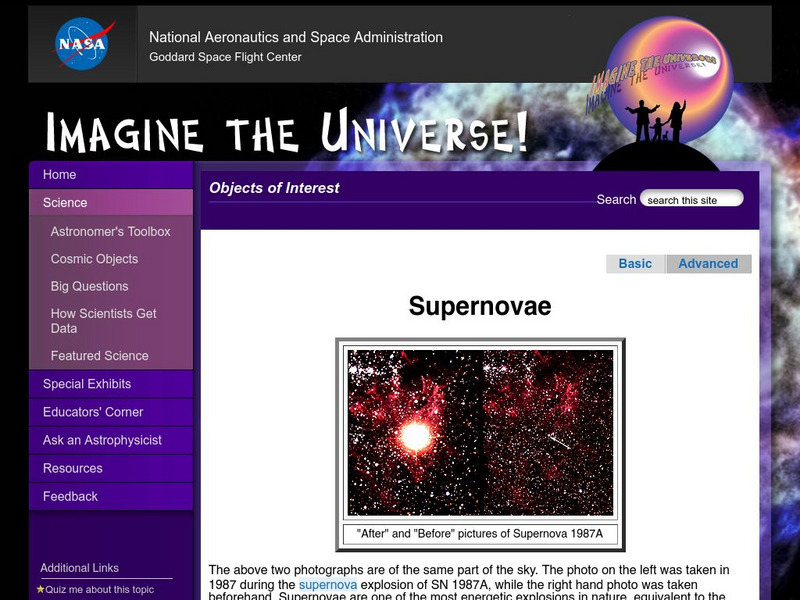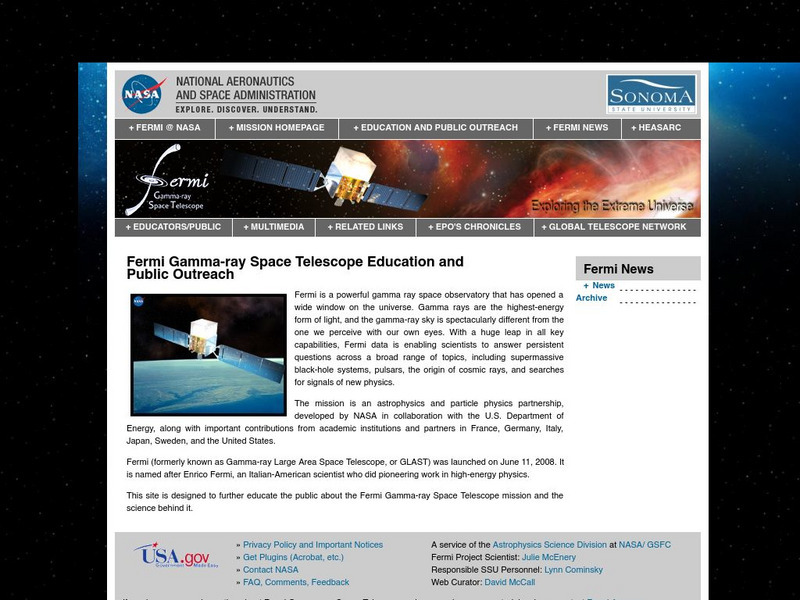Curated OER
Stellarium
Students explore the rotation of the planets from various locations on Earth
Using planetarium software, they will make observations, and explain how the rotation of the planets varies based on ones location on the Earth. Students...
Curated OER
Tracking the Movement of Sunspots
Students examine how the development of new technology has increased our knowledge of how the sun works. Students study sunspots through the use of solar imaging from satellite instruments.
Curated OER
The First Amendment
Students participate in a mock trial. Given the scenario, students prepare a cases concerning the freedom of religion, freedom of speech, and the right to assemble. In groups, students prepare an opening and closing statement, as well...
NASA
Nasa: Imagine the Universe: How Big Is That Star
This 2-5 day lesson plan investigates the diameter, radius and mass among several stars in order to understand stellar behavior, particularly in a binary system.
PBS
Pbs Learning Media: Birth of a Supernova, Type Ii
In this interactive activity from NOVA Online, learn about a type of exploding star a Type II supernova that is so large it has a mass 10 times greater than the mass of our Sun.
Other
University of Leicester: Irregular Galaxies
Provides a general overview of irregular galaxies, including a specific look at type I and type II irregulars.
Other
University of Leicester: Comets, Asteroids & Meteorites
Provides a general overview of comets, asteroids, and meteorites. Content includes ways to identify them in the night sky, as well as detailed information on each type of small body.
Cosmos 4 kids
Cosmos4 Kids: Stars
A great site to find general information on stars and their place in the universe. Click on the topics on the right margin for additional information about stars.
NASA
Nasa: Imagine the Universe: Supernovae (Advanced)
Supernovae are divided into two basic physical types, including a description of supernova types and how they are classified based on the existence of hydrogen spectral lines. Definitions of key terms are provided.
BBC
Bbc: Stars
Use this site to explore how stars are born and die. There are also sections on star types and chemistry inside stars.
University of Texas at Austin
University of Texas: Thunderstorms
You can find out the conditions for a thunderstorm, the life cycle, types, and wall clouds.
University of California
Ucmp: From Starfish to Sea Cucumbers
A comprehensive site that looks at the different types of echinoderms, their life history and anatomy.
Sonoma State University
The Gamma Ray Large Area Space Telescope (Glast)
Background information on gamma rays and the sources of gamma rays in the universe. Discusses the purpose of the GLAST space mission and the types of findings which they wish to make. A link to the GLAST movie provides an excellent...












